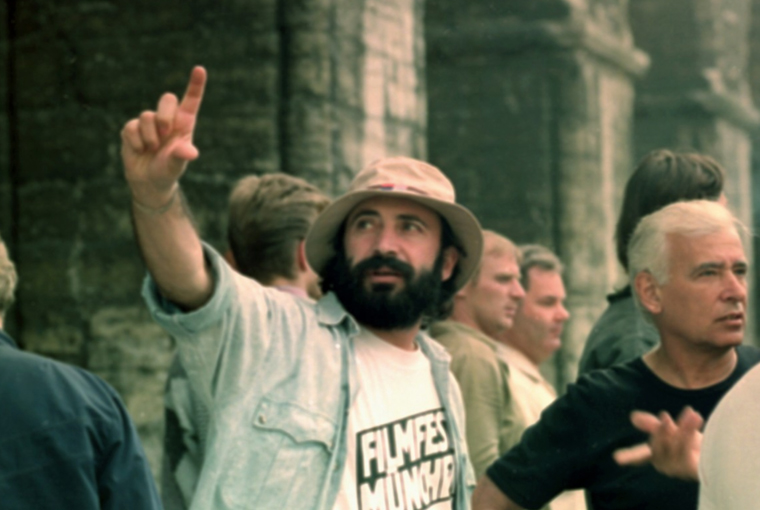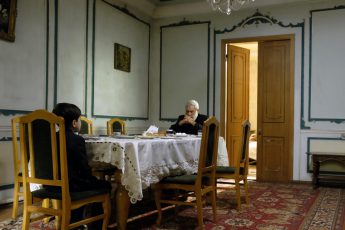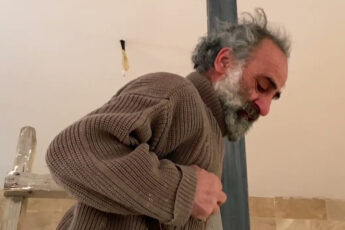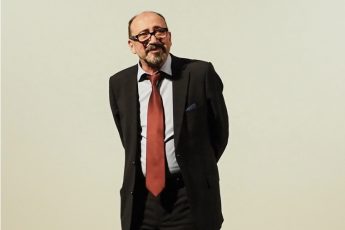The Eternity of Real Time
An Ode to Harutyun Khachatryan’s Films
Vol. 52 (April 2015) by Godfrey Reggio
Viewing Harutyun Khachatryan’s films, one is taken on a journey beyond the common expectations of cinema. Without realizing it, the viewer is pulled into an experience that keeps on giving. His is experiential cinema at its best. Harutyun does not tell you a story. He serves up a seamless atmosphere of place and person in the temple of real time, a manner that renders time timeless. What he offers is a speechless narrative in a story to behold.
The images before you are at once the fusion of the visual and the aural. One requires the other to feel his stories. The music is the emotive narrative, without metaphor, directly transmitting to the soul. What you hear is what you see; what you see is what you hear. Amazing.
Following in the footsteps of his renowned elders, the archangels of the image, Sergei Parajanov and Artavasd Peleshian, his creations join theirs in a poetry for the soul. In the eternity of real time his films explore the communal conviviality, courage and fragility of life and land. Armenia is the subject — the snow, the seasons, the language, the moment of the vanishing point always being the turning point. His characters emanate from the soil of Armenia like vivid flowers, watered with humor and tempering the heat of life. Aromatic characters in full bloom walk through his doors. Their speechless narratives have more to say than may be spoken. Visceral impact beyond explanation is itself the “explanation”. Trusting the audience, his films are autodidactic. They speak to the aesthetic triplets residing within us all: sensation, emotion and perception.
In viewing Border something happened that startled and quite surprised me: I became completely involved with the life and emotions of the water buffalo. The tension created through the bovine portraits will stay with me like a watermark for a very long time. The focus given to this beautiful creature was like a cinematic starlet! In this unexpected profundity Disney may do well to pay attention. Harutyun has achieved what an animated anthropomorphized fantasy cannot: a fantasy of the real, a true monster of grace. In Return of the Poet, by the end of the film, itself a beginning, I, the stranger, could hear too: “a mother so tired and old, singing songs to every stranger who came along.” I rode in the truck, ate the food, drank the sweet apricot, heard the music as I danced the night away. I was there! The poet at home enshrined in snow, indeed in stone, spoke to me. Like the statue of the poet, I, too, was sculpted in time.
Harutyun’s films are the odd one in. Counterintuitive, his moving stills create an experience where the meaning is in the form. Long-long takes conjure a reciprocal gaze that invites the viewer into the scene. True to life, the journey is the destination. Like nighttime images clothed in the light of day, they reveal a depth beyond the surface of the screen. His films invite the audience to swim as far as they feel comfortable from the shores of conventional cinema into the waters of the vivid unknown.
Harutyun, son of Armenia, true to form, has created visual poetry that, together with that of his elders, is unique in the cinematic world. Thank you Armenia, thank you Mother for giving birth to such creative souls. Like the stars of the night, their lights from the past are in our presence.




Leave a Comment